Lists
by Jeremy Garber, March 22, 2022 8:59 AM
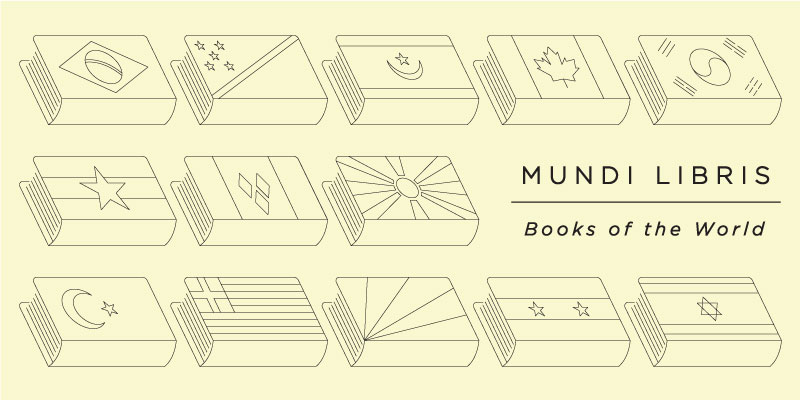
Ah, spring — at long last! Of all the simple, delighting joys the season brings, reading outside amidst the blooms and blossoms and lengthening days must rank near the top. This month’s field of new literature in translation includes Ukrainian short stories, Venezuelan metafiction, a "cheerfully dystopian" Japanese novel, a French love story, a Spanish debut about working-class women, a Belgian crime novel, French eco-fiction, the new work from an Austrian Nobel laureate, a Norwegian psychological thriller, Belgian short fiction, the gorgeous Catalonian novel called "like nothing I've read before" by C Pam Zhang, German historical fiction, an Argentine novel set in the art world, existential short fiction from Turkey, and more.
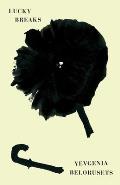 Lucky Breaks
by Yevgenia Belorusets
Lucky Breaks
by Yevgenia Belorusets
Ukrainian writer and photographer Yevgenia Belorusets’s award-winning debut story collection, Lucky Breaks (translated by Eugene Ostashevsky), offers powerful tales of ordinary and anonymous women in the aftermath of the 2014 Revolution of Dignity. Weather author Jenny Offill calls Lucky Breaks, "A daring, unsettling book about displaced women telling luminous stories to survive the darkness that surrounds them."
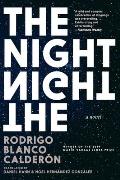 The Night
by Rodrigo Blanco Calderon (trans. Daniel Hahn & Noel Hernández González)
The Night
by Rodrigo Blanco Calderon (trans. Daniel Hahn & Noel Hernández González)
Winner of the 2019 Mario Vargas Llosa Biennial Prize, Rodrigo Blanco Calderon's The Night (translated by Daniel Hahn and Noel Hernández González) is a polyphonic, metafictional novel about femicides, electrical blackouts, word puzzles, and more. The Venezuelan author, named to the original 2007 Bogotá39 list of promising young Latin American writers, has already garnered some notable acclaim, including from The Sound of Things Falling author Juan Gabriel Vásquez, who says, “The Night is about palindromes and murderers, anagrams and social chaos, how words work and countries break down. A daring and smart novelistic debut.”
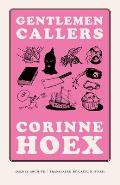 Gentlemen Callers
by Corinne Hoex (trans. Caitlin O'Neil)
Gentlemen Callers
by Corinne Hoex (trans. Caitlin O'Neil)
The first of Belgian author Corinne Hoex's books available in English, Gentlemen Callers (translated by Caitlin O'Neil) is a collection of short fiction about a woman's "dreams of erotic encounters with different men." Lee Yew Leong (Asymptote) says, "Sensuous — and sensational — Gentlemen Callers is full of exquisite treats, rivaling Belgian compatriot Amélie Nothomb's wit, humor, and imagination....it's gems like this that remind me that there's still much to discover from smaller, less heard-from countries within Europe. I would consider it scandalous if Hoex's fiction is still unknown in the world literature canon ten years down the road."
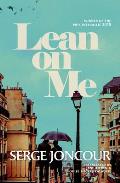 Lean on Me
by Serge Joncour (trans. Jane Aitken & Louise Rogers Lalaurie)
Lean on Me
by Serge Joncour (trans. Jane Aitken & Louise Rogers Lalaurie)
French novelist and screenwriter Serge Joncour won the Prix Interallié (awarded for a novel written by a journalist) for his latest, Lean on Me (translated by Jane Aitken and Louise Rogers Lalaurie) — the tale of an unlikely romance between “two unhappy souls trapped in ruthless worlds.” Booklist says, “This richly observed and thoughtful novel is part love story, part meditation on the loneliness of urban life and the necessity of connection.”
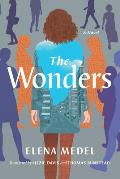 The Wonders
by Elena Medel (trans. Lizzie Davis & Thomas Bunstead)
The Wonders
by Elena Medel (trans. Lizzie Davis & Thomas Bunstead)
Spanish poet and publisher Elena Medel's debut novel, The Wonders (translated by Lizzie Davis and Thomas Bunstead), has already appeared in 15 languages. A story about a pair of working-class women in and around Madrid, The Wonders confronts issues of gender, class, economics, politics — and has been acclaimed by the likes of Adrienne Celt, Avni Doshi, Anna Solomon, and others. Mariana Enríquez, author of The Dangers of Smoking in Bed, says, “Completely unsentimental and with a harshness that hides the most radiant and painful of scars, Elena Medel's The Wonders brings to life several generations of working women: it's a serene and impious novel that puts class, feminism, and the eternal complexity of family ties at the fore.”
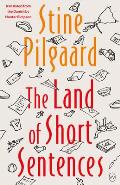 The Land of Short Sentences
by Stine Pilgaard (trans. Hunter Simpson)
The Land of Short Sentences
by Stine Pilgaard (trans. Hunter Simpson)
Winner of the Scandinavian American Foundation's Leif and Inger Sjöberg Translation Prize for 2021, Danish author Stine Pilgaard's first book to appear in English, The Land of Short Sentences (translated by Hunter Simpson), is a humorous work about a new mother and her newspaper advice column. Danish daily Berlingske says, “Stine Pilgaard has a pronounced talent for parody. She can write in such a way as to make you laugh out loud, bringing into the open the things we find embarrassing, capturing the absurdities of everyday life. Her dialogues are natural and precise, her language clear and succinct, and her references plain and recognizable. But beneath the lightness of her prose lies something other and more than comedy and rhetoric.”
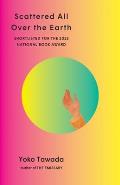 Scattered All Over the Earth
by Yoko Tawada (trans. Margaret Mitsutani)
Scattered All Over the Earth
by Yoko Tawada (trans. Margaret Mitsutani)
Japanese author Yoko Tawada has won a slew of literary awards, including the prestigious Akutagawa Prize and National Book Award for Translated Literature (The Emissary). Tawada's new novel, Scattered All Over the Earth (translated by Margaret Mitsutani) — the first in a trilogy — is "cheerfully dystopian" and "bring[s] to mind a surreal mix of Alice's Adventures in Wonderland, Innocents Abroad, and The Wind in the Willows." Booklist says, "Tawada slyly interrogates shifting (disappearing) borders and populations, native (invented) identities, assumptions, and adaptations. Her most frequent translator, Mitsutani, brilliantly ciphers Tawada's magnificently inventive wordplay."
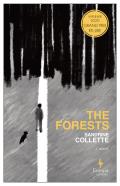 The Forests
by Sandrine Collette (trans. Alison Anderson)
The Forests
by Sandrine Collette (trans. Alison Anderson)
Winner of the 2020 Grand Prix RTL-Lire (chosen by a jury of 100 readers), French author Sandrine Collette's new novel, The Forests (translated by Alison Anderson), is an ecofictional tale of a forsaken young man surviving after environmental cataclysm. Elle says, “Halfway between The Road by Cormac McCarthy and In a Perfect World by Laura Kasischke. In this radiantly beautiful book, Sandrine Collette achieves a perfect balance between horror and beauty, finding poetry even in the dust.”
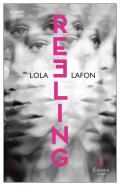 Reeling
by Lola Lafon (trans. Hildegarde Serle)
Reeling
by Lola Lafon (trans. Hildegarde Serle)
Lola Lafon, the French award-winning author of The Little Communist Who Never Smiled, returns with Reeling (translated by Hildegarde Serle), a psychological portrait of a young teen navigating the often toxic, exploitative world of competitive dance. Kirkus says, “the deep relevance and the nuanced portrayal of the myriad effects of abuse on their lives are skillfully done. Layered and disquieting.”
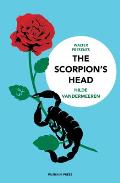 The Scorpion's Head
by Hilde Vandermeeren (trans. Laura Watkinson)
The Scorpion's Head
by Hilde Vandermeeren (trans. Laura Watkinson)
Belgian author and trained psychologist Hilde Vandermeeren began her writing career with kids' books and young adult fiction, before moving on to thrillers — which have since netted her the Hercule Poirot Readers Prize. Her latest, The Scorpion's Head (translated by Laura Watkinson), is a taut tale about a mother suspected of attempted murder, a contract killer who wants out, and what happens when their paths cross. Flemish daily De Standaard calls it “an expertly constructed crime novel with a beautiful international dimension. Vandermeeren is one of our greatest talents in the genre.”
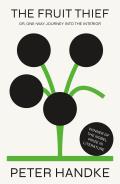 The Fruit Thief: Or, One-Way Journey Into the Interior
by Peter Handke (trans. Krishna Winston)
The Fruit Thief: Or, One-Way Journey Into the Interior
by Peter Handke (trans. Krishna Winston)
Austrian writer and 2019 Nobel Laureate Peter Handke's new novel, The Fruit Thief: Or, One-Way Journey Into the Interior (translated by Krishna Winston), follows a young man following a woman (the titular fruit thief) across France. Publishers Weekly says, “[Handke] is a savvy explorer of the minutiae of human experience, and makes every hour of his wanderer's sojourn 'dramatic, even if nothing happened,' as the narrator notes…It adds up to a powerful anthem for 'the eternally daunted undaunted'…Admirers of the stylistically cavalier Handke will be rewarded for taking in the scenery of this story.""
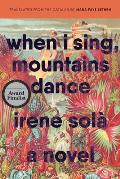 When I Sing, Mountains Dance
by Irene Solà (trans. Mara Faye Lethem)
When I Sing, Mountains Dance
by Irene Solà (trans. Mara Faye Lethem)
Catalan artist, poet, and writer Irene Solà's When I Sing, Mountains Dance (translated by Mara Faye Lethem) is a gorgeous novel about life, love, and loss, told from several perspectives (including a few non-human voices). Balanced by both joy and sorrow, Solà's story overflows with abundant imagery, folklore, and euphonious prose. How Much of These Hills Is Gold author C Pam Zhang says, "Like nothing I've read before. This novel is a feral, yowling love howl to a place of such staggering majesty that it resists usual comprehension. By giving voice to animals, storms, outcasts, one-legged girls, birthing women, and the mountain itself, Solà pushes past the limits of human experience to tell a story of instinct and earth-time that is irresistible in its jagged glory."
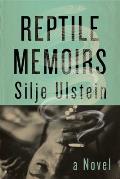 Reptile Memoirs
by Silje Ulstein (trans. Alison McCullough)
Reptile Memoirs
by Silje Ulstein (trans. Alison McCullough)
Norwegian author Silje Ulstein's debut novel, Reptile Memoirs (translated by Alison McCullough), was a bestseller in her home country. Ulstein's psychological thriller is a “shifting tale of family secrets, rebirth, and the legacy of trauma,” acclaimed by Booker shortlister Emily Fridlund (History of Wolves), who says, "This book is a shapeshifting marvel. I found it compulsively readable, and not just for the unexpected paths by which it unpacks its secrets. Silje Ulstein writes about snakes in ways that made me feel I've never really seen them before: In language that is as seductive as it is prickly, she pries open the boundaries between reptiles and humans, adults and the children they once were, and criminals and victims. An uncanny, unsettling, and totally immersive read."
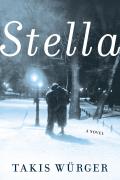 Stella
by Takis Würger (trans. Liesl Schillinger)
Stella
by Takis Würger (trans. Liesl Schillinger)
German journalist, war reporter, and author Takis Würger's second novel, Stella (translated by Liesl Schillinger), is historical fiction set during World War II — based partially on real events (and on real-life Nazi collaborator Stella Goldschlag). Lawrence Osborne, author of The Glass Kingdom, says, "With its deceptively simple yet quietly elegant style, Stella takes us into a world which we assume perhaps that we know, the Berlin of the war years. To our surprise, however, we discover that we do not know it at all. Here is a love story set among jazz clubs and artist studios yet inevitably enacted in the shadow of the Gestapo. It's a story which shows us something new about a nightmare which is always in danger of seeming too familiar."
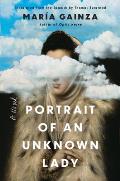 Portrait of an Unknown Lady
by Mariá Gainza (trans. Thomas Bunstead)
Portrait of an Unknown Lady
by Mariá Gainza (trans. Thomas Bunstead)
Optic Nerve, Argentine author Mariá Gainza's first work in English, was called “rare and exquisite” (Los Angeles Review of Books) and “radiant” (The Nation). Her follow-up novel, Portrait of an Unknown Lady (translated by Thomas Bunstead), takes readers back to the world of art for a tale about an auction house staffer/art critic on the trail of an enigmatic forger. In their starred review, Kirkus says, "The work of an author in full command of her talents. The result is an exploration of identity and authenticity that asks what it means to be 'real,' as the term is applied either to a work of art or to a life…Subtle, incandescent, and luminous — a true master's work."
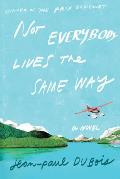 Not Everybody Lives the Same Way
by Jean-Paul Dubois (trans. David Homel)
Not Everybody Lives the Same Way
by Jean-Paul Dubois (trans. David Homel)
Winner of France's prestigious Prix Goncourt, Jean-Paul Dubois's Not Everybody Lives the Same Way (translated by David Homel) is the story of an imprisoned man taking stock of his life from behind bars. BibliObs says, “Dubois has humanity rooted in his heart, but is under no illusions about anything…This cocktail of humor, intelligence, and sentiment, freshly served with a deceptively casual elegance, is once again so successful.”
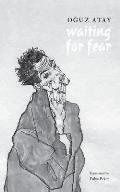 Waiting for Fear
by Oguz Atay (trans. Fulya Peker)
Waiting for Fear
by Oguz Atay (trans. Fulya Peker)
Late Turkish writer Oguz Atay (1934-1977) was a writer, professor, and civil engineer. Waiting for Fear (translated by Fulya Peker) is a collection of Atay's short fiction “trac[ing] the existential conflicts of different 'selves' struggling to survive.” Turkish writer and translator Armagan Ekici says, “Fulya Peker's masterly translation brings the complexities of Oguz Atay's deeply ironic, multilayered, parodic, polyphonic text to English with a clear affinity for the source text, and displays a deep understanding of what Atay was trying to achieve in Turkish.”
|